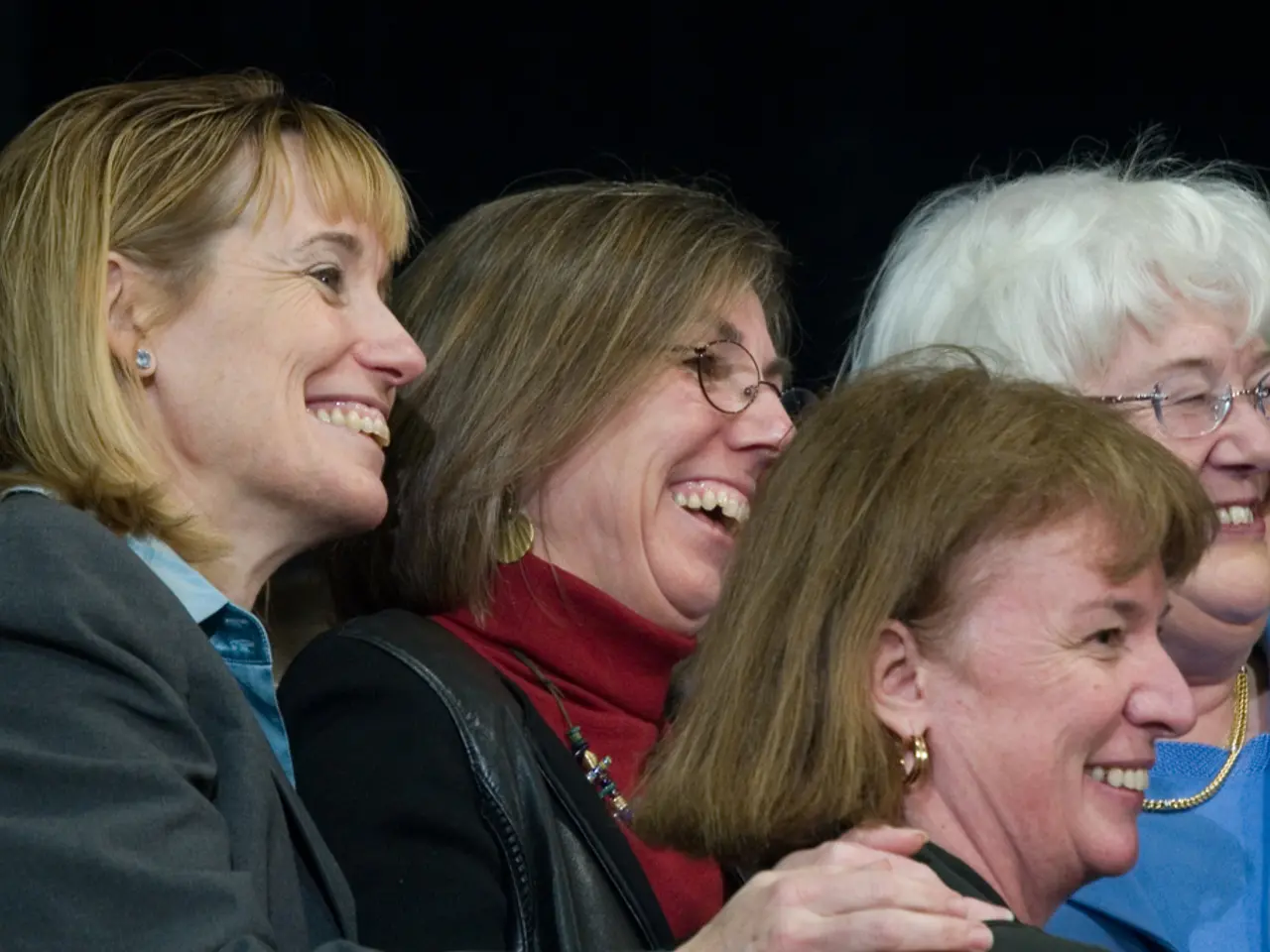Caring for an Aging Elderly Individual in 2025
In the golden years of life, frailty can pose significant challenges for older adults. As bodies become more vulnerable, maintaining biological, emotional, and social well-being becomes crucial. A multidimensional, holistic approach, combining physical activity, psychosocial support, and environmental and socioeconomic interventions, has proven effective in supporting older adults experiencing frailty.
Mind-body training, such as Taiji and Baduanjin, integrates gentle physical movements with breath regulation, offering a potent method to alleviate physical frailty and improve quality of life. Aerobic exercise, like walking or stretching, enhances the ability to perform daily activities, contributing to maintaining independence and physical function. Mixed physical activity programs, including strength training and balance exercises, also demonstrate benefits in slowing or reversing frailty progression.
Psychosocial support is vital in addressing emotional needs such as grief, bereavement, and social isolation. Structured social support services help mitigate these risks, providing warmth, dignity, and consistent human connection to support elder independence. Financial stability and socioeconomic support are crucial, as income insecurity correlates strongly with higher frailty scores; targeted financial assistance can reduce frailty burden.
Environmental improvements, such as better housing and urban planning that enhance residential satisfaction, support social engagement and mental well-being. Comprehensive, integrated healthcare management, including routine frailty screening, medication review, and multidisciplinary care, addresses chronic conditions and polypharmacy, reducing frailty progression. Shared decision-making, early care planning, and nutritional support complement physical and psychosocial interventions to holistically manage frailty.
The recommended intervention frequency for physical activities is 50-60 minutes per session, 2-3 times per week, yielding significant improvements in frailty outcomes. Given the multifactorial nature of frailty, tailored programs that combine these elements within community or clinical settings are most effective in supporting older adults' biological, emotional, and social well-being.
Spiritual care is an essential aspect of care for frail older adults, providing meaning, peace, and emotional comfort. Yaser Teebi, a Clinical Psychologist and Gerontologist, supports adults facing complex issues, including chronic pain, trauma, grief, anxiety, depression, and cognitive challenges. His practice also includes relationship issues and broader mental health support for older adults.
In conclusion, a holistic approach, encompassing physical activity, psychosocial support, and environmental and socioeconomic interventions, is key to supporting the well-being of frail older adults. By adopting such strategies, we can help older adults maintain their independence, improve their quality of life, and combat loneliness, ultimately enriching their overall experience in their golden years.
[1] Reference for mind-body training, aerobic exercise, and mixed physical activity programs. [2] Reference for psychosocial support, financial stability, socioeconomic support, environmental improvements, comprehensive healthcare management, shared decision-making, early care planning, and nutritional support. [3] Reference for the multifactorial nature of frailty and tailored programs. [4] Reference for the recommended intervention frequency for physical activities. [5] Reference for the effectiveness of holistic approaches in supporting older adults' biological, emotional, and social well-being.
- Older adults in their golden years often face challenges due to frailty, necessitating a focus on nutrition to maintain biological well-being.
- Psychology and psychosocial support play significant roles in addressing the emotional needs of seniors, such as grief, trauma, anxiety, depression, and cognitive challenges.
- Mental health, including mental health treatments and therapies, is crucial for older adults, providing solace amidst complex issues.
- Science has shown that chronic medical conditions, chronic diseases, autoimmune disorders, and neurological disorders can cause frailty, underscoring the importance of proper healthcare management in the golden years.
- Cancer, respiratory conditions, cardiovascular health, and digestive health are common concerns in older adults, making health and wellness a priority.
- Eye health and hearing are important aspects of maintaining quality of life in the golden years, highlighting the role of healthcare and health-and-wellness practices.
- Skin care and fitness-and-exercise, including exercise routines, yoga, and mind-body training, contribute to overall well-being and slow down the aging process.
- Workplace-wellness initiatives can help seniors stay active and engaged, promoting physical and mental health in the later stages of life.
- Diet, food-and-drink, and lifestyle choices significantly impact aging; a balanced diet rich in nutrients is essential for men's health and women's health.
- Social engagement, relationships, and connections are vital for older adults experiencing frailty, as loneliness can exacerbate the condition.
- Pets can provide comfort, stability, and companionship for senior citizens, acting as emotional support animals.
- Travel opportunities, especially those tailored for older adults, can broaden horizons, stimulate cognitive function, and promote social connections.
- Lifelong learning and education-and-self-development can enhance mental health and personal growth, keeping seniors engaged and cognitively stimulated.
- Shopping for essentials, including groceries, clothing, and fashion-and-beauty items, can provide a sense of purpose and independence.
- Career development for older adults is essential, as many wish to continue working or seek new opportunities for personal and financial growth.
- Home modifications and gardening can improve the quality of life for seniors, ensuring a safe and comfortable living environment.
- Medicare, the national health insurance program for older adults in the United States, provides access to essential healthcare services and treatments, alleviating financial burden.
- Skin conditions, including age-related changes and various disorders, can impact older adults' self-esteem and quality of life, highlighting the importance of skincare routines and dermatological care.






